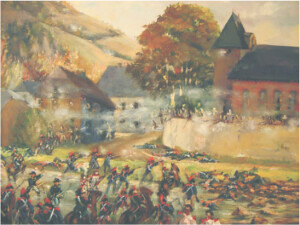The 11th Amendment to the U.S. Constitution is passed by the U.S. Congress.
The 11th Amendment to the United States Constitution was passed by Congress on March 4, 1794, and ratified by the states on February 7, 1795. It consists of a single sentence and addresses the issue of sovereign immunity, particularly in regard to lawsuits against states.
Text of the 11th Amendment:
“The Judicial power of the United States shall not be construed to extend to any suit in law or equity, commenced or prosecuted against one of the United States by Citizens of another State, or by Citizens or Subjects of any Foreign State.”
This amendment was largely a response to the Supreme Court case Chisholm v. Georgia (1793), in which the Court ruled that a citizen of one state could sue another state in federal court. This decision alarmed many states, fearing that it would expose them to excessive litigation and financial liability.
The 11th Amendment effectively overruled the Chisholm decision by preventing citizens from suing states in federal court. It establishes the principle of sovereign immunity, which protects states from being sued without their consent. However, it’s important to note that this immunity is not absolute and has been subject to interpretation and exceptions by the courts over time.

